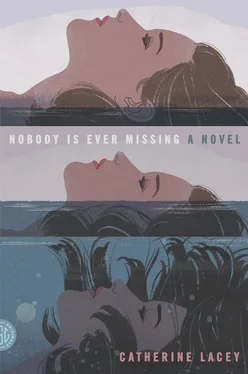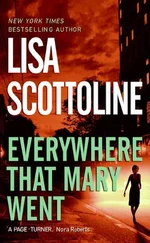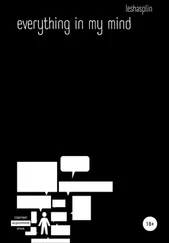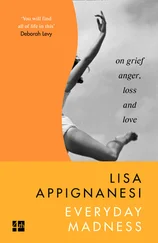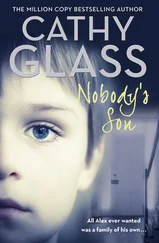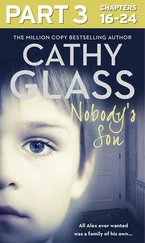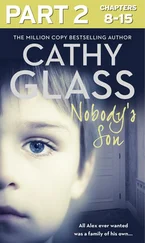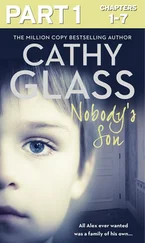Did you know that she would go the way she did?
When I was a kid I knew she was leaving, sort of slowly, but I didn’t know what that meant. Just that there was less of her all the time. Every year more of her was gone.
I asked him questions like this even though it made my husband suffer, like a child pinching leaves off a fern frond.
Did you know it was going to happen to Ruby?
No , I said, not really. Did you know?
We barely knew each other, Elly. We hardly ever spoke.
And this is what he always said and what I always had a hard time believing, that he barely knew her, and I thought of Ruby and my husband in his office and how he’d look at her equations, not at her face, and I thought of them in his classroom when she was his TA and how she could have heard his chalk click on the board there, and now that same noise woke me up some nights and Ruby knew this noise before I did and what did that mean? What did it mean that she knew something that I would eventually know, that her dying made my life take this turn? I sometimes thought that my husband’s pain had radiated out of him and into Ruby’s blood and turned her against herself, that it was his fault somehow that Ruby pushed out the screen in the women’s room and put herself into the air, but I also knew (though I maybe didn’t know that I knew) that she had come to this conclusion on her own, though I still sometimes imagined my husband had sent a signal out the way bats or plants sometimes do. My husband knew what a woman looked like before she threw herself out of this world and he knew Ruby before she threw herself out of this world and I will never be able to divide those two things.
I wanted him to be responsible for how Ruby went missing, and I know that no one gets back what they lose this way and he wouldn’t and I wouldn’t, but at the same time I wanted it back and couldn’t stop wanting it back and if I couldn’t get it back I wanted, at least, for someone or something to be at fault — I wanted him to be responsible for how Ruby went missing.
I am or we were (or still are) the kind of people who can never quite get away from our losses, the kind of people who don’t know that magic trick that other people seem to know — how to dissolve a sense of loss, how to unbraid it from a brain.
* * *
The morning after our box pasta dinner and loss thumbing, I went to the clinic to give them the blood and information I said I’d give them. It was for a study, and I didn’t know exactly what they were looking for, only that I had agreed to do it as a favor to some colleagues of my husband’s.
Reliable participants were hard to find, they said.
Reliable participants would do the following:
Arrive at seven in the morning each Tuesday on an empty stomach, bleed a tube of blood for a nurse, allow the lab technician with the large, soft hands to apply the electrodes, answer the questions he asked ( What do you believe in? What is your greatest fear? What is the point of love? ), bleed more blood, drink a blue liquid, sit in a dark room for fifteen minutes, answer questions in the dark ( Do you believe inner peace is possible? Is there an afterlife? What is something you know is true? ), give more blood, eat a complimentary pack of graham crackers and a carton of juice so you don’t pass out on the subway or sidewalk, go home, and receive a check for ninety dollars each Friday.
As they took the blood, I watched the thin, clear tube turn red and I felt it get warm against my forearm and I thought about how my hands and my husband’s hands still loved each other and how the rest of our bodies just dangled off these hands and I envied how simply those hands could be what they were — ambivalent chunks of bone and muscle that just touch, hold, and are held, repeat. And maybe, I thought, if I was lucky, this study could end up making my blood and brains feel better, less driven by dread, less stuck on what is missing. But part of the point of this study was that I not know the study’s point, which made it seem a lot like everything.
Have you seen that? the old lady asked, tilting her head toward two large white buildings built to look like a sheep and a dog.
Oh, what are they?
A sheep and a dog , she said.
But what’s inside?
Buildings , she said. They made them to look like animals. It’s funny.
She pulled over in front of a café with a sign that said THE INTERNET. I got out of the car and the old lady said, Good luck, take care , and I didn’t know what I was going to spend any good luck on or what I could care for, but I said, Thank you , because that’s what you do.
A woman was sitting at an old, beige machine while a dial tone droned and hissed and beeped and fractured into static. She glanced at me and smiled. Ambiguously familiar pop music was playing, an excited woman singing like a maniac, an excited maniac, about something exciting, about how good it all was, how good it would always be. The woman hummed along to the music, seeming so content with the static still hissing, the nothing happening. The amount of patience in this country — how long a person could spend happily waiting — maybe this was why I had come here. Not for the isolation, but the place where people can happily do very little, the world’s largest waiting room.
It took a moment for me to remember how to log into my email or what email even was, what any of those words on the screen meant. My boss’s name appeared a few times, which didn’t make any difference to me since I knew I didn’t work there anymore. There were a few emails from Husband: apologies for whatever he had done, demands of apologies from me, apologies for the demands of apologies, demands — again — for some kind of sense to be made of everything, for me to pay him what I owed him, pay him in my time and life, to pay off the hurt I’d done by stealing myself — I was his, he said, I belonged to him, to us, to our future, and didn’t I understand that? How did I not understand that? What had I done with that understanding?
The most recent was only a few minutes old:
I know you’re not at your mother’s, Elyria. I didn’t want to, but I looked through your emails, hoping to figure something out and, well, I don’t know what to say. Call me. Whatever time it is. I am barely ever sleeping now, so you won’t wake me up …
And there was also a two-word note from Mother: Everything okay?
Those words just sat there— everything okay? — as if we understood each other so well that this kind of shorthand was even possible— everything okay? — and I knew that she knew that nothing was okay, that she wasn’t and I wasn’t and we had never been, and I remembered, too, this was also what she had asked, years ago, when I told her over lunch that I was going to marry the professor.
Oh, honey …
And she put a hand on my hand as if I was her honey—
Is everything okay?
The main thing that wasn’t okay in that moment was her hand on my hand, so I took my hand back and I asked her what that was supposed to mean, and I was thinking of how terrible it is that everyone has to be a child of a person, and why would someone want to make more people when it all just leads up to sitting in an expensive midtown restaurant on an overcast Tuesday trying to eat a poached egg that’s gone cold under hollandaise congealed like pale yellow blood, talking about whether anything is okay .
It just seems odd. I mean, Ruby’s professor? Like, her boss? That skinny boy with the big jacket? I mean, sure, get yourself a first ex-husband, whatever, but I just don’t think he’s right for you.
Читать дальше
